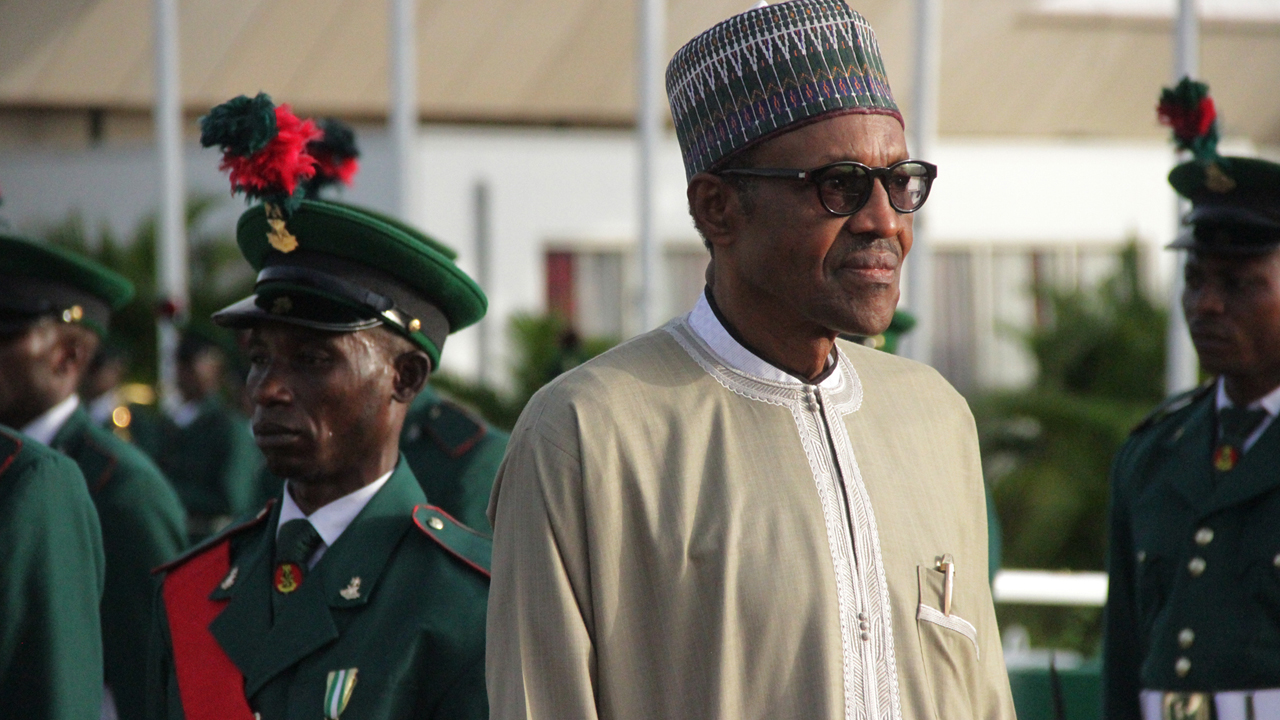- Buhari Orders Background Checks on Judges Designate
President Muhammadu Buhari is currently carrying background checks on Federal High Court and Court of Appeal judges nominated and forwarded to him by the National Judicial Council last year.
It was further learnt that the President might have approved the compulsory retirement of Justices Adeniyi Ademola and Segun Tokode, both of the Federal High Court as recommended by the council.
A source in the Presidency, who spoke to our correspondent on Sunday on condition of anonymity, said the two steps were in line with the present administration’s anti-corruption stance.
He said although the President believed that the NJC would have done due diligence before putting forward the judges for approval, there was the need for him to do some checks to ensure that no mistake was made in their nomination.
It was further learnt that the nation’s security agencies such as the Department of State Services and the Economic and Financial Crimes Commission were involved in the checks.
The source added that the development did not, in any way, mean that the President had refused to approve the judges’ appointments.
He stated, “On the appointment of judges into the Federal High Court and Court of Appeal, the President is looking at that as recommended by the NJC.
“The NJC obviously has done due diligence on the appointed judges. There is no question about that. It is expected that they would have done their duty.
“But giving the President’s emphasis on the war against corruption, he himself will obviously need to do some checks that will assure him that no mistake has been made.
“It is not that the President has refused to approve it. He is looking into the recommendation made before pushing them forward because the Senate will be involved.”
On the case of the judges recommended for compulsory retirement, the government official described the issue central to the council’s decision as one that the President did not take lightly.
He said the Attorney General of the Federation, Abubakar Malami (SAN), would soon make a formal announcement on Buhari’s position on the matter.
“It is a disciplinary issue relating to corruption. This is a matter that the President does not take lightly.
“You should expect a statement on the matter from the Attorney General of the Federation very soon. That is about being concluded,” the source said.
When contacted on the telephone, the Senior Special Assistant to the President on Media and Publicity, Garba Shehu, directed our correspondent to Malami who, he said, was in a better position to answer questions on the two issues.
The AGF however did not answer the calls to his telephone lines on Sunday.
Also, he had yet to reply a text message sent to him as of the time of filing this report.
The NJC had, late last year, recommended Justices Ademola and Tokode, both of the Federal High Court, for compulsory retirement for alleged misconduct.
According to a statement by NJC’s Director of Information, Mr. Soji Oye, the council, at its meeting, “under the chairmanship of the Chief Justice of Nigeria, Justice Walter Onnoghen, sanctioned Justice Ademola after finding the allegations contained in a petition sent against him by eight persons under the name of ‘Committee of Anambra State PDP House of Representatives Members-Elect.’
“The public is hereby informed to disregard the news circulating on some news media that Hon. Mr. Justice Ademola has voluntarily retired. The purported voluntary retirement is clearly an afterthought as Council had taken action before his decision to forward any voluntary retirement letter.”
Justice Tokode, who was appointed to the Federal High Court bench in 2015, was accused, in a petition sent by the Socio-Economic Rights and Accountability Project and Miss Abimbola Awogboro, of making false claims to the Federal Judicial Service Commission and the NJC over his appointment qualification.
He was said to have submitted six judgments he claimed to have personally conducted while practising as a lawyer.
Only one of the judgments was said to be truly conducted by him.
The submission of six judgments to the FJSC and the NJC was said to be a pre-requisite for his application for appointment as a judge.
He was therefore ordered to refund the salaries and allowances he earned since his “purported appointment to the position of a judge” to the coffers of the judiciary.


 Forex3 weeks ago
Forex3 weeks ago


 Naira2 weeks ago
Naira2 weeks ago
 Billionaire Watch2 weeks ago
Billionaire Watch2 weeks ago




 Naira2 weeks ago
Naira2 weeks ago




 Naira4 weeks ago
Naira4 weeks ago




 Naira2 weeks ago
Naira2 weeks ago


 Naira1 week ago
Naira1 week ago
 Banking Sector4 weeks ago
Banking Sector4 weeks ago





















